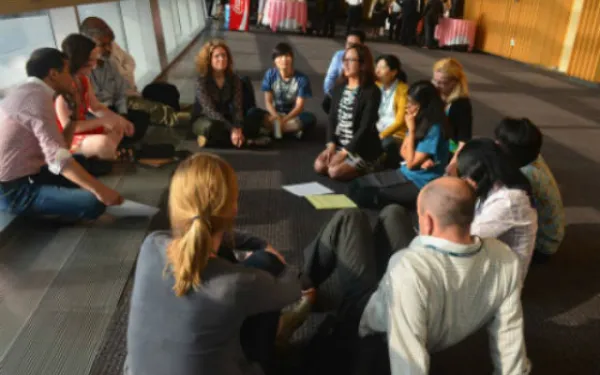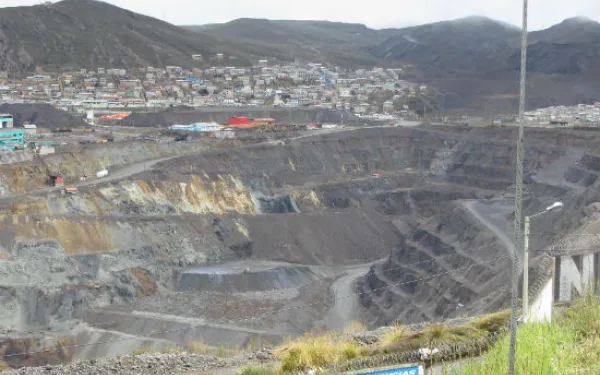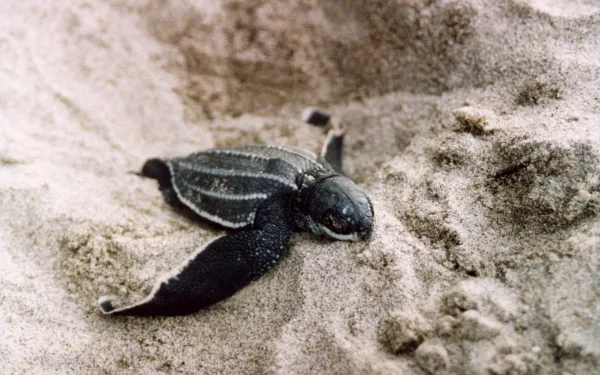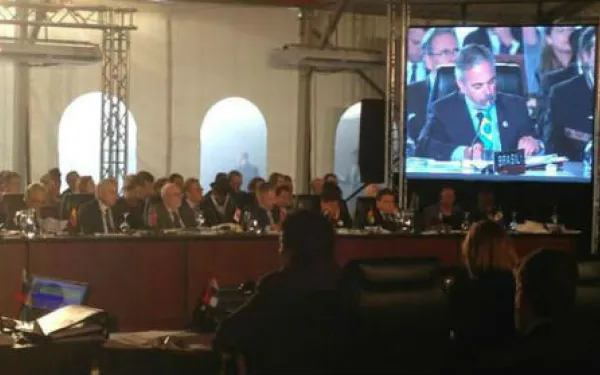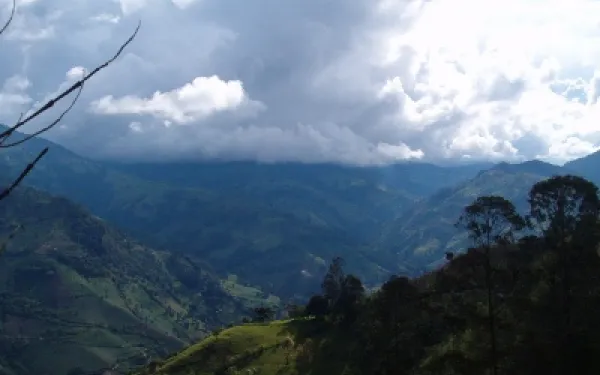
How we protect Andean ecosystems from mining's impacts
Few places in the world are so vulnerable to environmental degradation from mining than Colombia. The country ranks second in coal reserves in South America and is home to what could be one of the largest gold mines in the Americas. This means it is imperative to deal with the environmental problems linked to mining. Paradoxically, Colombia has a rich ecology. This ranges from forests to fragile environments such as páramos, or high-altitude ecosystems that capture water from fog and supply it to lowlands. Both have a rich biodiversity that would suffer devastating impacts from mining. But it’s not just the environment. The ethnic and rural communities that rely on these natural resources for their livelihoods are the most susceptible to mining. AIDA has worked to protect these Andean ecosystems, which are vital sources of water. Due to a shift in national policy from agriculture to mining as Colombia’s economic and industrial priority, the threats of mining are intensifying. In response, AIDA has used political and legal strategies to strengthen and enforce environmental legislation in the country. We have turned to comparative and international law to clarify the country’s legal requirements and establish precedents for the creation of public policies that protect fragile environments from large-scale mining. In this effort, AIDA helped the Inter-Church Commission for Justice and Peace, a Colombian human rights group, to file a lawsuit against the Mandé Norte project of Muriel Mining Corp. in the northeastern department of Chocó. With the resolution of this case (see above, Spanish only), Colombia's Constitutional Court set a crucial precedent. It ruled that indigenous and tribal communities have the right to freely access information about the project and to express their prior consent for the construction of the mine, all while under the protection of national and international laws. Specifically, the court ordered the Colombian government to stop all work on the Mandé Norte mine until the company carried out extensive studies on the potential environmental impacts and made a new and adequate consultation of the affected communities. The Ministry of Interior and the mining company asked the court to reverse its decision. AIDA and other organizations submitted requests (see our interventions, Spanish only) to keep the ruling intact. This finally happened on March 12, 2012 when the court confirmed its decision (see the confirmation of the sentence, Spanish only). To the east of the Mandé Norte project, another such project is threatening the environment and communities in the Santander department. AIDA is working to stop the construction of Angostura, an open-pit gold mine that Canada’s Greystar Resources Ltd. – now called Eco Oro Minerals Corp. – plans to build in the Santurbán páramos, high-altitude wetlands that supply drinking water to 2.2 million Colombians and help to mitigate the effects of climate change. During the environmental licensing process for the project, AIDA helped to demonstrate that Colombia’s legal obligations as well as international norms prohibit mining in the páramos. Based on this argument, Colombia’s Ministry of Environment, Housing and Territorial Development rejected (Spanish only) the environmental impact assessment denied the environmental license for Angostura in May 2011. But as the decision didn’t cancel the mining licenses, Eco Oro said it would seek to build an underground mine. In January 2013, the ministry declared Santurbán a Regional Natural Park, a move that can prevent the development of mining concessions in páramos areas. Through all of this, we found evidence of violations to social and environmental standards in the national and international funding for the Angostura mine by the International Finance Corporation (IFC), an entity of the World Bank Group. Given the alleged noncompliance with these standards, we teamed up with the Center for International Environmental Law (CIEL) and MiningWatch Canada to submit a complaint to the Office of the Compliance Advisor Ombudsman (CAO), the independent complaints office of the IFC. We called for an audit of the project and a subsequent divestment. The CAO decided to audit the investment process. The outcome could set a precedent to ensure that the IFC does not finance mining in páramos, a key decision given that such initiatives are planned elsewhere in Colombia as well as in Ecuador and Peru. In addition to these efforts, AIDA has been actively involved in the debate (Spanish only) concerning a boundary demarcation of Colombia’s páramos as a way to protect these ecosystems. According to Colombian law, the geographical location and characteristics of páramo ecosystems must be mapped out to establish their legal perimeters. Once officially determined, the boundaries will provide the basis for conservation measures, in particular the prevention of activities that cause irreversible damage. Together with prestigious Colombian environmentalists and society as a whole, AIDA has taken action (Spanish only) to press the Ministry of Environment to endorse a demarcation based on scientific criteria by adopting a new atlas of the páramos drawn up by Colombian officials. At the same time, AIDA has worked with other environmental organizations to investigate La Colosa, a mining project that South Africa-based AngloGold Ashanti Ltd. plans to develop in the forest reserves and the large farmlands of Tolima, a central-western department of Colombia. In this case, we have sought a more active and informed participation of citizens and compliance with the highest environmental standards. AIDA also has joined forces with other organizations to file a suit with the goal of analyzing the constitutionality of Colombia’s National Mining Code. The Constitutional Court has set important precedents regarding the need to protect environmentally sensitive areas and the importance of the precautionary principle. It also has set a precedent for ensuring the independence of environmental authorities in regard to mining authorities when it comes to awarding environmental licenses for mining projects. In addition to Colombia, AIDA has been enlisted to help halt the construction of mines in Bolivia, Ecuador, Costa Rica, Mexico, Panama and elsewhere. To do this, AIDA has developed legal and scientific resources from our analysis of case studies and writing of reports. These resources can be useful for protecting the environment and the rural and indigenous communities that are the most affected by mining.
Read more

